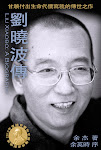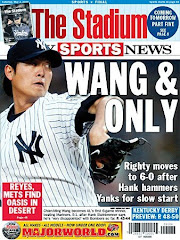2010年1月31日 星期日
大導演Zeffirelli批評女高音Daniela Dessì演《茶花女》太老、太胖了...
65公斤應該還好吧!52歲可能就見仁見智了....
但每個女高音都像Anna Netrebko或Angela Gheorghiu般年輕貌美,事實上事不可能的...
Zeffirelli老先生,你就多擔待點吧!

“A woman of a certain age and plumpness is not credible in the character of Violetta,” the veteran film and opera director told her.
Asked about the threat of legal action, he said: “She can threaten what she likes, but I am entitled to choose my singers and exercise my artistic freedom.”
Zeffirelli is still a dominant force in Italian opera. Last September a decision by New York’s Metropolitan Opera to open its 2009-2010 season with a new production of Tosca directed by Luc Bondy caused a stir after a number of opera fans demanded Zeffirelli’s 25-year-old staging instead. (08/01/2010)
郎朗 揮別環球,投向索尼
郎朗「跳槽」的聲浪傳言已久,二○○八年他正式成為索尼產品代言人,之後事情漸趨白熱化。雖然索尼目前尚未正式對外宣告,但環球唱片去年底已對內宣佈郎朗轉戰索尼的消息。
事實上,英國《留聲機》雜誌網站早在五天前(1/26)便率先獨家披露此則消息:
Gramophone exclusive: Lang Lang signs to Sony
Chinese pianist moves from DG
Chinese pianist Lang Lang has signed to Sony Music.
The 27-year-old moves from Deutsche Grammophon, the label he joined in 2003. In the years since, his virtuoso talent and media appeal have propelled him to the status of one of classical music’s highest-profile stars, not least in China where he has become a figurehead for the country’s burgeoning enthusiasm for classical music.
The deal with Sony begins this month and their first disc together is due in the autumn, though repertoire details are yet to be announced. According to Lang Lang’s management, part of the reason for the move is the increased opportunities that Sony, a media company with film and technology divisions, can offer. In 2008 the pianist became a brand ambassador for Sony, helping promote its electronics products.
Lang Lang’s most recent recording on DG – Rachmaninov and Tchaikovsky chamber works performed with Vadim Repin and Mischa Maisky – was well received in Gramophone’s November 2009 issue.
Earlier this month Sony Classical also announced the signing of Simone Dinnerstein, another high-profile pianist whose previous two discs both topped the US Classical Billboard chart. She moved from Telarc – the label where, incidentally, Lang Lang had begun his recording career prior to joining DG. (26 January 2010)
2010年1月26日 星期二
DG 2010年目錄透露的訊息

預計推出的兩款低價環保盒裝磚塊最讓筆者好奇~
馬勒作品大全集(20CDs)
舒曼偉大作品集(35CDs)
由於伯恩斯坦的10首交響曲版本也同步預告發行環保盒裝,因此,納入大全集一部份的可能性應該不高,如此一來,大全集會拉哪一位的版本進來就成了最大的懸念,是早已失去新鮮感的Kubelik版或Sinopoli版,還是80~90年代的Abbado版,或者會是最新的Boulez版本,甚至是七拼八湊的大雜燴版,大家一起來玩猜謎遊戲吧!
另外,古樂指揮家湯瑪士.亨格布洛克(Thomas Hengelbrock)與巴撒沙紐曼古樂團(Balthasar-Neumann-Ensemble)即將展開莫札特交響曲錄音計畫,第一彈推出第35號與41號兩部作品,因為有特別標明第一集,因此可以大膽推測很可能又是另一套全集錄音計畫的開始。
2010年1月25日 星期一
罕見曲目寶藏還是很多的德國CPO唱片

 巴西籍作曲家Villa-Lobos交響曲全集(7CDs),由Carl St. Clair指揮Radio Symphony Orchestra of Stuttgart演出。這一套再加上BIS那一套也是7CDs的《啼樂與巴西風巴哈組曲全集》(Complete Choros & Bachianas Brasileiras ),基本上就已經囊括其一生曲藝菁華了!
巴西籍作曲家Villa-Lobos交響曲全集(7CDs),由Carl St. Clair指揮Radio Symphony Orchestra of Stuttgart演出。這一套再加上BIS那一套也是7CDs的《啼樂與巴西風巴哈組曲全集》(Complete Choros & Bachianas Brasileiras ),基本上就已經囊括其一生曲藝菁華了!
- 瑞典果然是北歐音樂的老大,在Eduard Tubin與Hugo Alfvén之外,還有很多曲目有待進一步陸續開發。
- Naxos旗下不缺英國、中歐、北歐與俄國交響樂團,但德國樂團似乎還是其久攻不下的罩門,這麼多年下來固定合作對象仍侷限在Staatskapelle Weimar與Cologne Chamber Orchestra兩團體,CPO在這方面佔了先天地利之便。
2010年1月24日 星期日
Niels Gade交響曲全集(5CDs)
浪漫樂派鋼琴協奏曲的黃金年代(20CDs)

Vox的「浪漫樂派鋼琴協奏曲」系列是Hyperion與Naxos類似企劃的先河,在1960與70年代錄音時很多曲目都屬於世界首錄,現由Brilliant取得授權完整推出20CDs。
詳細曲目~
Cramer: Klavierkonzert Nr. 5
Czerny: Divertissement de concert op. 204
Ries: Klavierkonzert op. 55
Clementi: Klavierkonzert C-Dur
Field: Klavierkonzert Nr. 2
Hummel: Concertino op. 73 fur Klavier & Orchester; Klavierkonzert op. 110 "Les Adieux"
Hiller: Klavierkonzert op. 69;Konzertstuck op. 113
Litolff: Concerto symphonique op. 45 fur Klavier & Orchester
Beach: Klavierkonzert op. 45
Kalkbrenner: Klavierkonzert Nr. 1
Moscheles: Klavierkonzert op. 58
Weber: Klavierkonzerte Nr. 1 & 2; Konzertstuck op. 79
Volkmann: Konzertstuck op. 42 fur Klavier & Orchester
Henselt: Klavierkonzert op. 16
Chopin: Allegro de concert op. 46 fur Klavier & Orchester
Moszkowski: Klavierkonzert op. 59
Scharwenka: Klavierkonzert op. 56
Raff: Klavierkonzert op. 185; Ode an den Fruhling op. 76
Mosonyi: Klavierkonzert e-moll
Stavenhagen: Klavierkonzert op. 4
Schubert / Liszt: Fantasie uber Beethovens "Die Ruinen von Athen"; Wanderer-Fantasie fur Klavier & Orchester
Weber / Liszt: Polonaise brillante op. 72
Liszt: Concerto pathetique e-moll; Fantasie uber ungarische Volksthemen; Malediction; Totentanz
d'Albert: Klavierkonzert Nr. 2
Bronsart: Klavierkonzert op. 10
Berwald: Klavierkonzert Nr. 1
Alkan: Concerto da camera Nr. 2 fur Klavier & Orchester
Schumann: Introduktion & Allegro appassionato op. 92
Mayr: Klavierkonzert Nr. 1
Roussel: Klavierkonzert op. 36
Pierne: Klavierkonzert op. 12
Tschaikowsky: Klavierkonzert Nr. 3; Konzertfantasie op. 56
Sinding: Klavierkonzert op. 6
Goetz: Klavierkonzert op. 18
Reinecke: Klavierkonzert Nr. 1
Mendelssohn: Capriccio brillant op. 22
Rheinberger: Klavierkonzert op. 94
Rubinstein: Klavierkonzert Nr. 4
Thalberg: Klavierkonzert op. 5
Medtner: Klavierkonzert Nr. 3
Balakireff: Klavierkonzert Nr. 2
Liapunov: Rhapsodie uber ukrainische Themen
Lalo: Klavierkonzert f-moll
Glasunow: Klavierkonzert Nr. 2
Gershwin: Klavierkonzert F-Dur
Barber: Klavierkonzert op. 38
MacDowell: Klavierkonzert Nr. 2
2010年1月21日 星期四
2010年1月19日 星期二
普羅高菲夫6部歌劇打包出售(14CDs)
2010年1月2日 星期六
英國泰晤士報回首過去10年古典樂壇

What didn’t happen to classical music in the past decade is almost more significant than what did. Despite dire predictions, orchestras haven’t collapsed because major record companies no longer make many classical CDs. The bands started their own labels instead, and enterprising independent companies also plugged the gap. We may no longer get 90 new recordings of Beethoven symphonies every year. But what’s coming from companies such as Hyperion, Linn, Naxos, ECM and Chandos is far more eclectic and often more enthralling.
Nor did classical concerts cease because the Grim Reaper claimed its remaining devotees — another common jeremiad in the late 20th century. In London, at least, there’s evidence that serious contemporary music is attracting far bigger and younger audiences than for decades. A Xenakis festival was an unexpected box-office hit. And while audiences in the regions may still need rejuvenating, one can reasonably hope that the exceptional charisma of the conductors now working outside London — notably Mark Elder in Manchester, Andris Nelsons in Birmingham, Vasily Petrenko in Liverpool, Stéphane Denève in Scotland — will trigger a renaissance.
The other potential disaster ten years ago was the disappearance of music in state schools. That, too, has been averted, though only narrowly. Music still exists at the precarious margins of the curriculum, but at least the government-funded Sing Up campaign has given a long overdue boost to choral singing in primary schools, and the lottery-funded charity Youth Music has ensured that far more musical opportunities now exist in poor communities. But compared with the superb musical education on offer to all children in Finland or Venezuela we still have a mountain to climb.
本誌短評:這裡談的都是英國國內的音樂教育。為了挽救日漸式微的中小學音樂課程,英國政府於2009年2月宣布,在2009到2011三年間將投入四千萬英鎊來推行「高聲歌唱」(Sing Up)方案,在英國各小學大力推廣歌唱課程,而Youth Music則是一項涵蓋面更廣泛的長期「孵夢」計畫,鼓勵兒童與青少年勇敢追求自己的音樂夢想,無論是組搖滾樂團或學習小提琴...
It was those Venezuelans — the Simón Bolívar Youth Orchestra — who provided the defining classical-music moment of the decade, when they gate-crashed Europe’s sedate halls with their gloriously exuberant performances and riotous samba routines. I think they made the entire profession — orchestras, soloists, conductors, impresarios, even composers — ask themselves: “Why can’t we enthuse audiences like that?” Expect a lot more informality in concert halls in the next decade, and a lot more classical music breaking out into unexpected venues. And expect to hear young composers and performers following the example of Yo-Yo Ma’s Silk Road project and cheerfully genre-hopping between jazz, rock, world and contemporary classical styles. After all, the target audience is already doing exactly that.
本誌短評:如果談到普及古典音樂,可能找不到第二個例子,可以像委內瑞拉的西蒙波利瓦青年交響樂團那麼激動人心!而馬友友的《絲路》計畫跨界結合東、西方,尤其是加入了近東伊斯蘭古文明音樂元素,也是另一個新途徑...
Face of the decade: Gustavo Dudamel.
The brilliant young Venezuelan conductor has come from nowhere to transform notions of what symphonic concerts can be like. His ebullient Simón Bolívar Youth Orchestra has dazzled audiences around the world, and reminded us that classical music needn’t be an artform reserved for wrinklies.
執筆:Richard Morrison
Budget Operas' Pick-- 伯恩斯坦版《玫瑰騎士》(Sony)

以下摘自1988年09月號英國《留聲機》雜誌:
Bernstein is not well served by another article in which we are told, approvingly, that he departed from the score because of his "extraordinary knowledge of Hofmannsthal's text". The writer says that the "best example" is in the second "Heut'oder Morgen" of the Marschallin in Act I "where Bernstein creates the musical climax with a crescendo that is not indicated in the score". Oh Isn't it?—it is in my copy. Then, he adjusts the balance in the Act 1 Trio for the Marschallin, Octavian and Ochs, where "lousy composing by Strauss" is apparently held to blame for the inaudibility in some performances of the Marschallin's "und wir, Herr Gott! Wir leiden den Schaden".
美國《紐約時報嚴選--100張值得收藏的歌劇專輯》(Anthony Tommasini著)推薦。
此版本現列入低價位Sony歌劇殿堂(Opera House)系列。
2010年1月1日 星期五
Budget Operas' Pick -- Muti史卡拉版《茶花女》(Sony)

以下摘自1993年10月號英國《留聲機》雜誌:
An exciting and eloquent reading on all sides, this version must now be rated with the established frontrunners—but, as with some of those, most notably any of Callas's versions and Muti's previous recording with Scotto, it is not for the fainthearted, or for those who like their Violettas to have full, equally, produced voices—they should look to Sutherland (Decca, 1/84) or, of more recent vintage, Studer (DG, 1/93). Fabriccini is evidently not an Act 1 Violetta. She has problems with the Brindisi and to an extent with "Un di felice". One is just about to write her off as technically too flawed, when in "Ah, fors'e lui" she suddenly alerts the mind and senses to her quality with her inflexions of the single word "palpito' , and in the second verse (we have here an utterly complete and accurate La traviata) she again and again phrases with distinction or colours words significantly— listen to the infinite tenderness of "0 amore". So, after all, this is a Violetta, even without assured coloratura and with problems at the passagio, who is going to hold our attention and move us.
Once confronted by father Germont in the Second Act she makes us aware that we are in the presence of a notable and individual artist, with a tear in the voice and what the Italians term morbidezza. My notes of praise hereabouts are copious. The urgency of "pin non esiste" as if this Violetta is aware that a blow is about to hit her, the weight of sorrow on "L'uomo giovane", these and so much else bespeak not only complete identification with Violetta's predicament but also vocal acumen of an exceptional kind, often based on the seemingly lost art of portamento. Because this is a live performance we are conscious that the singer's acting is part of the secret of the reading's success, that and the obvious youth of a soprano who is not yet a preening prima donna. Maybe the power and security are not there for "Amami, Alfredo", yet the passion is very much present, as is the Italianate rightness of sound and accent.英國《Gramophone Classical Good CD Guide》推薦
此版本現列入低價位Sony歌劇殿堂(Opera House)系列。
Budget Operas' Pick-- Levine大都會歌劇院版《Luisa Miller》(Sony)
以下摘自1992年9月號英國《留聲機》雜誌:
Domingo's Rodolfo is more or less as it was for Maazel—generous in tone and phrase, a little short on subtlety. This is the satisfying but generalized performance we are accustomed to from this ever-willing tenor. Many will not complain when the involvement is so obvious even if he Sometimes seems in another acoustic from the orchestra (tracking on?). Maybe it is unkind to say that a tenor of the Schipa variety without Otello overtones is more suitable for Schiller's and Verdi's heart-broken hero. And that's what we have in the Pavarotti of 1975 for Maag, then at his most sweetly and engagingly lyrical.
ably as the work progresses rising finely to the sad, doomed girl of Act 3. "Ah! l'ultima preghiera" is delivered in that plangent, piano tone of which we know she is mistress. A little earlier in the act, she and Vladimir Chernov draw all the tenderness and plaintive beauty Out of "Andro, raminghi e poveri": this is Verdi singing of the highest class in both tone and feeling. But then Caballé (Maag) and Ricciarelli (Maazel) are just as appealing, Caballé more even of tone, Ricciarelli even more affecting than Mille. Choice between the three will very much depend on which prima donna's voice and style you prefer. All are appreciable Luisas.
企鵝指南:★★★
Budget Operas' Pick--Caballe版《莎樂美》(Sony)

此版本現列入低價位Sony歌劇殿堂(Opera House)系列。





















